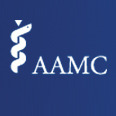by
Astrid Fiano, DOTmed News Writer | July 12, 2010
The American Association of Medical Colleges has released a new report for academic medical centers on the issue of conflict of interest in clinical practice due to physician (and institutional) financial relationships with the medical industry.
The report, "In the Interest of Patients: Recommendations for Physician Financial Relationships and Clinical Decision Making," was prepared by the AAMC's task force on financial conflicts of interest in clinical care. The report was developed in order to help institutions evaluate physician or institutional financial interests in the products of companies used in connection with patient care. The report focuses on how these relationships are or can be perceived as conflicting with the interests of patients. Institutional leaders have a special responsibility for addressing conflicts of interest, the report says: "These are the individuals who frequently set the standards for prescribing or use of products as well as standards for purchasing decisions."
Many academic medical centers have specific policies on conflicts of interest in research as well as policies on industry gifts. However, the report notes that just a small number of academic medical centers have specific policies defining and addressing conflicts of interest in clinical care.
In the report, several areas are examined: defining and identifying financial relationships, reporting of such relationships to the institution, disclosure of any potential conflicts of interests to patients, and management of conflicts. Transparency of financial relationships to the patient consumer is a key to managing conflicts, according to the report. For example, websites disclosing financial interests can be very useful for disclosure, but only if there are uniform standards in doing so, and efforts are made to maintain clarity of information for the public. The report also suggests promoting public understanding of the issue--which is often confusing even among professionals-including what relationships to disclose and what those relationships mean.
The report features several overall recommendations:
--That academic medical centers should determine if their bases for compensation and reward adversely affect physician behavior;
--That professional medical societies should set standards of addressing their relationships and conflicts of interest with industry;
--That academic medical centers should address potential clinical conflicts of interest through identifying industry relationships with physicians, and evaluating them;
--That academic medical centers should address institutional financial relationships and conflicts of interest with industry in the context of their clinical care services;
--That academic medical centers should disclose the industry ties of their physicians to their patient communities as one non-exclusive means of managing actual and perceived conflicts of interest in clinical care;
--That academic medical centers should involve their patient communities in determining how disclosure of financial relationships of its physicians and of the institution should be made available to patients.
The AAMC Report
